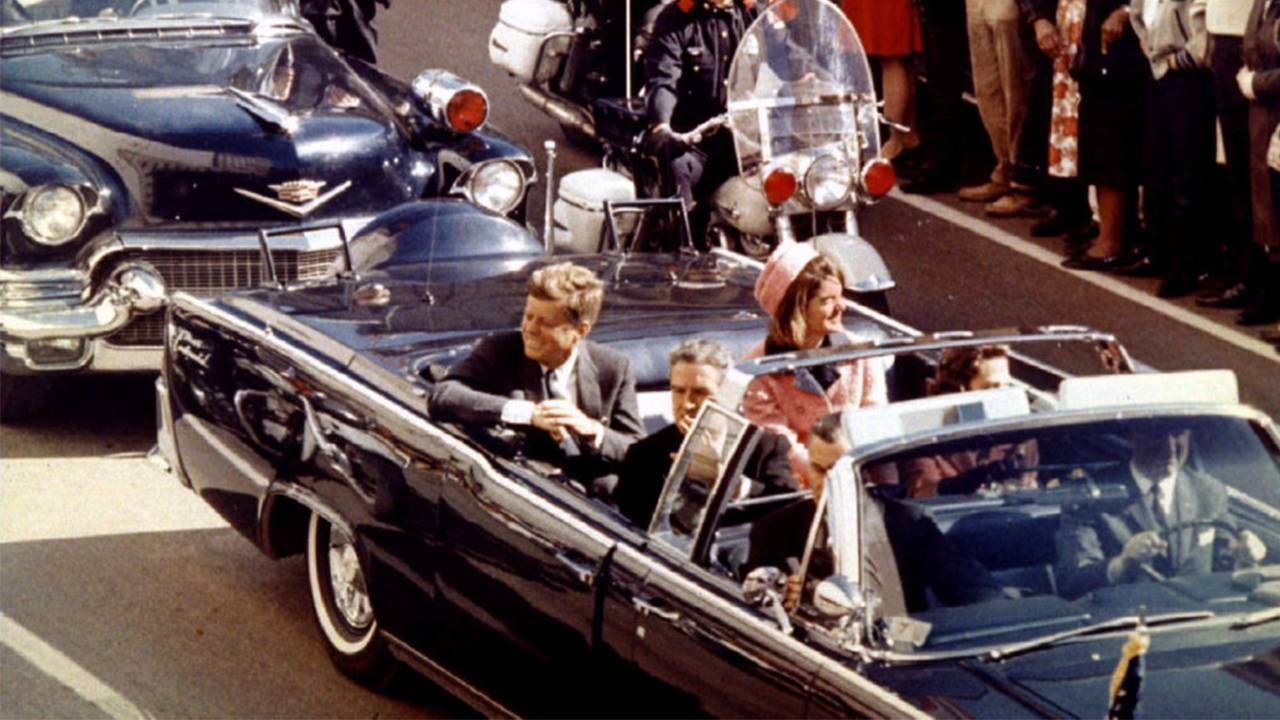JFK's 3 Enduring Legacies for Boomers
Reflections from a noted history professor and boomer authority
(On the 58th anniversary of President John F. Kennedy's assassination, Next Avenue republishes this tribute.)

We have learned many truths (noble and sad) about the John F. Kennedy and his presidency — enough to propose that JFK's legacy was threefold:
Legacy No. 1: Effecting generational succession. Age and youth were vividly represented on Inauguration Day 1961. One of the nation's most popular presidents, Dwight David Eisenhower, then 70, looked his age, bundled up against the bitter cold that gripped the Capitol. His successor, 43 years old, braved the wind and ice coatless.
John Fitzgerald Kennedy spoke about a bloodless transition of power from one party to another, from one age group to the next in words that still ring today: "Let the word go forth, from this time and place, to friend and foe alike, that the torch has been passed to a new generation of Americans."
JFK promised a "New Frontier"— a bold vision, with vigorous action and high hopes. "Let us begin anew," he declared. "Since the country was founded, each generation has been summoned to give testimony to its national loyalty."
For Kennedy's generation, children of Depression and war, this meant leading with steadfast purpose and civility. JFK desired to negotiate from a position of strength in tackling issues here and abroad.
No radical, the president deployed ideas and tactics that had served the nation well. Kennedy was prepared to be Braveheart in the Cold War. At home, he sought counsel from "the best and the brightest." His inaugural address's most memorable line invoked democratic impulses enshrined by the Founding Fathers: "Ask not what your country can do for you; ask what you can do for your country."
Ideally, generational successions can generate the creation and implementation of new ideas if sage leaders build on vital traditions dear to the electorate. JFK understood this. No president since has succeeded so well in mobilizing young and old, or melding old and new.
Legacy No. 2: Stirring imaginations. JFK inspired Americans. His Peace Corps, for example, summoned idealistic, gifted women and men to serve, in the words of his inauguration speech, "those peoples in the huts and villages of half the globe struggling to break the bonds of mass misery." Although Kennedy's Alliance for Progress did not achieve the democratic reforms in Latin America that policymakers hoped, the effort aligned the president with well-meaning human rights advocates.
On the domestic front, Kennedy sought to remedy pockets of need that he identified by race, region and age, focusing particularly on the nation's poorest. More boldly, JFK made it a national priority to land Americans on the moon by the end of the decade.
John and Jacqueline Kennedy also stirred imaginations by embodying elegance in style that went beyond rhetorical flourishes and high fashion. Foreign leaders and ordinary Americans were impressed by the couple's commitment to the arts and science. Refurbishing the White House afforded an opportunity to celebrate U.S. history with taste.
Legacy No. 3: Manufacturing myths. Not all of President Kennedy's legacies invoke fond memories, however, which is why some choose to recall the Kennedy mystique, rather than the man.
The reality: The Bay of Pigs fiasco set the stage for the Cuban missile crisis. JFK's inaugural promise to "pay any price, bear any burden, meet any hardship" committed U.S. military into aggressive fights against communism around the world, including Vietnam. Congressional conservatives dissuaded the President from pressing for major civil rights legislation until grassroots movements, such as those initiated by the Reverend Dr. Martin Luther King, Jr., forced his hand.
We now know, of course, that Camelot had a dark side. JFK hid serious illnesses and a voracious sexual appetite. The president's death underscored the undeniable pervasiveness of violence in the American grain.
3 Ways Boomers Have Responded
Those of us comprising the nation's 78 million boomers have responded to JFK's legacy in three ways:
First, as adolescents we had to get beyond a loss of innocence. Daniel Patrick Moynihan could have been speaking about — or to — boomers when he made this observation about the death of JFK: "We'll laugh again. It's just that we will never be young again."
To middle-class kids like me at the time, the murder of a charismatic figure in his prime was devastating. It prompted a lot of "what ifs" as we contemplated our future selves for the rest of our own lives.
Second, there was a disillusioning, disconcerting gap between what was and what could be. We grew accustomed to accommodating the fragility of life, to recognizing that people and institutions could fail us. One of the boomers' developmental tasks has been to reconcile lingering youthful idealism with a detachment borne through experience.
And yet, there is a third option for some boomers, including me. Hope — tempered by hard knocks and shadowed by the fragility of all things — remains.
We have survived longer than JFK; we have seen and heard enough to know that few Camelot myths end as happily as we desire. But we need not lose our ideals in the process of growing older. Our children may yet build on some of the enobling promises that JFK profiled in courage.

